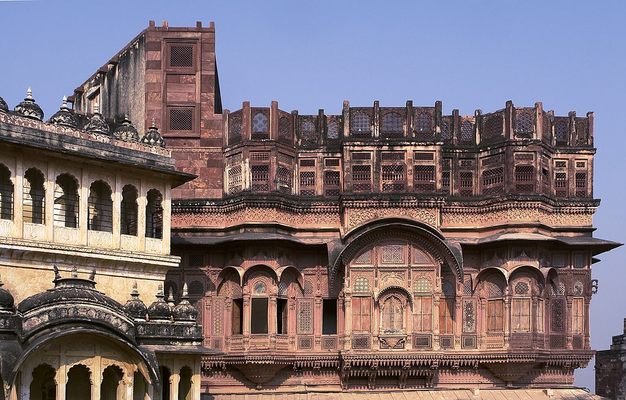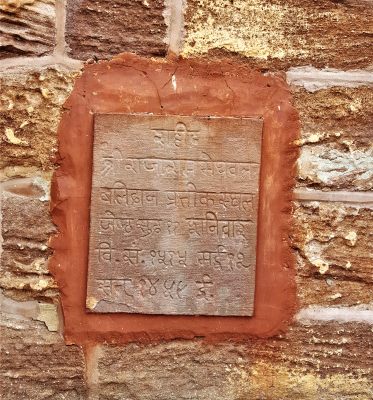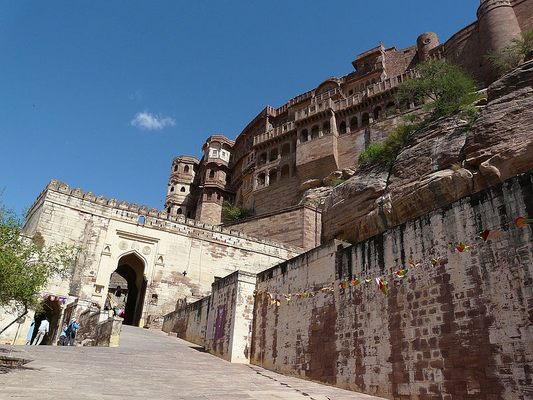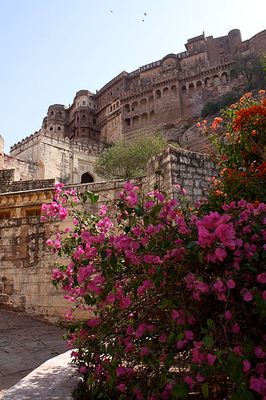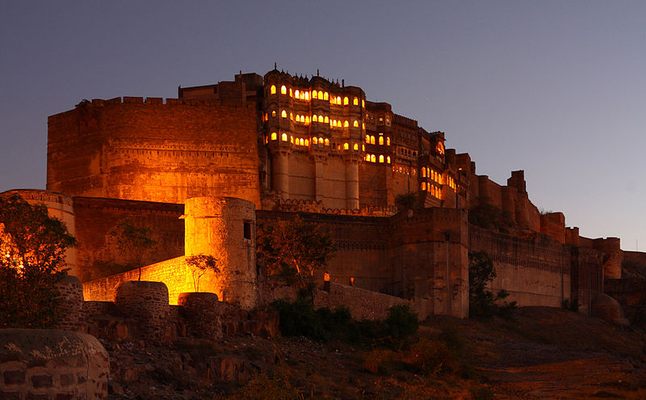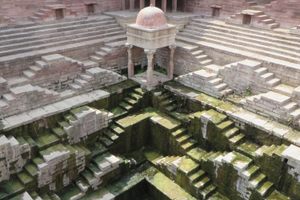About
The title "Amar Shahid" signifies eternal martyrdom. And according to legend, it was given to Rajaram Meghwal, a commoner living the region that's now the city of Jodhpur, for agreeing to be buried alive in the foundation of the towering Mehrangarh fortress in order to break a curse.
In the 15th century, the ruler Rao Jodha was seeking a more secure fortress for his kingdom, and founded Jodhpur in 1459 on a hill in the Thar Desert. His fortress, Mehrangarh, is one of the largest in India, rising 400 feet above the surrounding plains. Overlooking the Blue City, it is filled with large courtyards and intricate carvings.
But according to legend, the hill Jodha chose for his great fortress was already occupied by an old man who cursed the area when soldiers arrived to clear the hillside, allegedly making it impossible for a fort to be built.
Upon hearing the news, the ruler rushed to the man and begged for forgiveness. Pleased by the ruler's humility, the man offered a way around the curse: While laying the foundation of the fortress, a person who voluntarily offered to be buried alive there would not only negate the curse, but also provide protection for the city.
The king, expecting no one to accept such a fate, was despondent. Which is where Rajaram Meghwal comes in. He valiantly offered to sacrifice himself for the kingdom. He was given the title of Amar Shahid for his act and honored with a plaque at an entrance to the fortress (not the fort’s only macabre monument). His descendants, who still live in the area, were taken care of by Rao Jodha’s family.
Related Tags
Know Before You Go
As a visitor, it is either the first of the last thing one sees if visiting Mehrangarh fort, depending on where one enters from. If traveling with a guide, the story is recounted in greater detail when they are shown the monument erected in his memory.
Published
January 4, 2018
